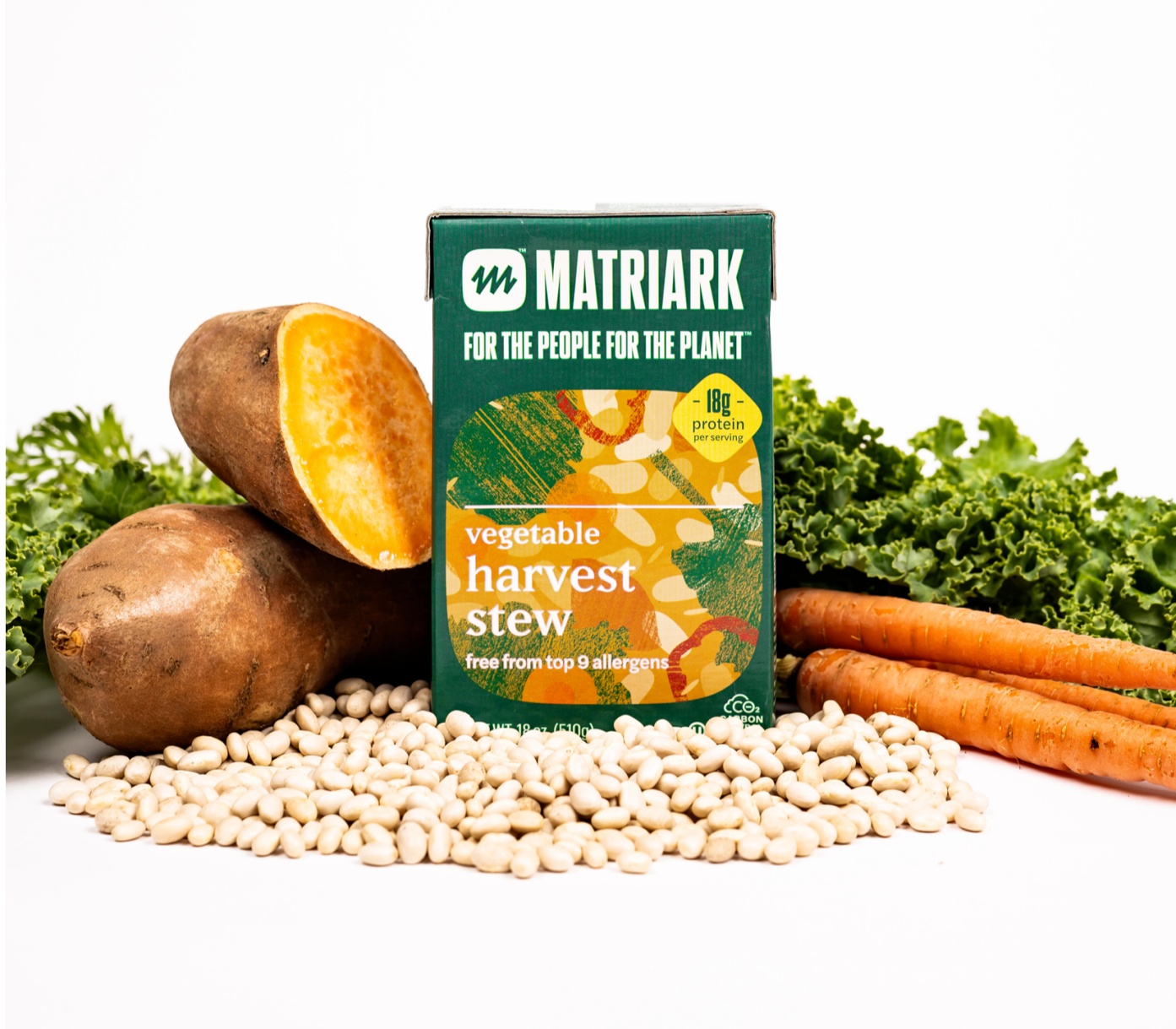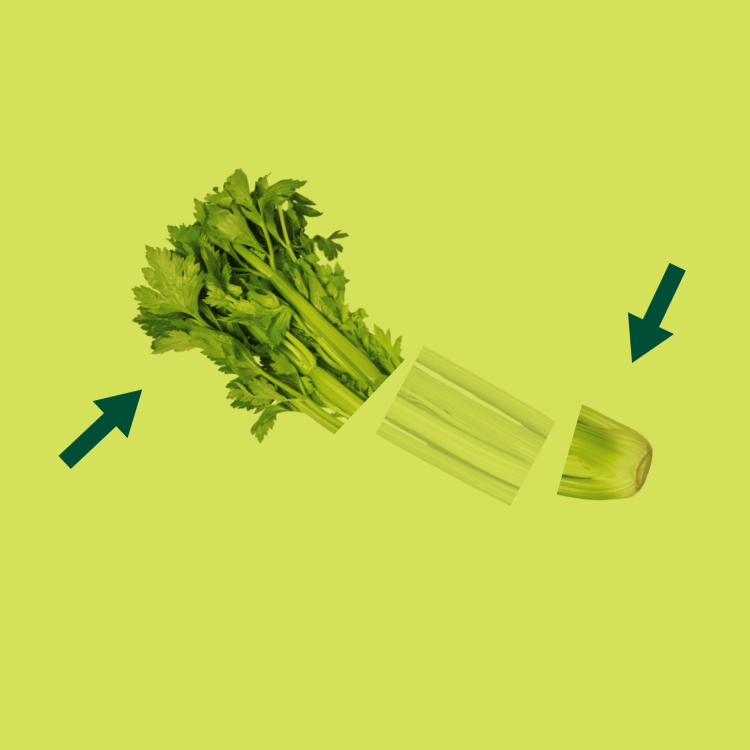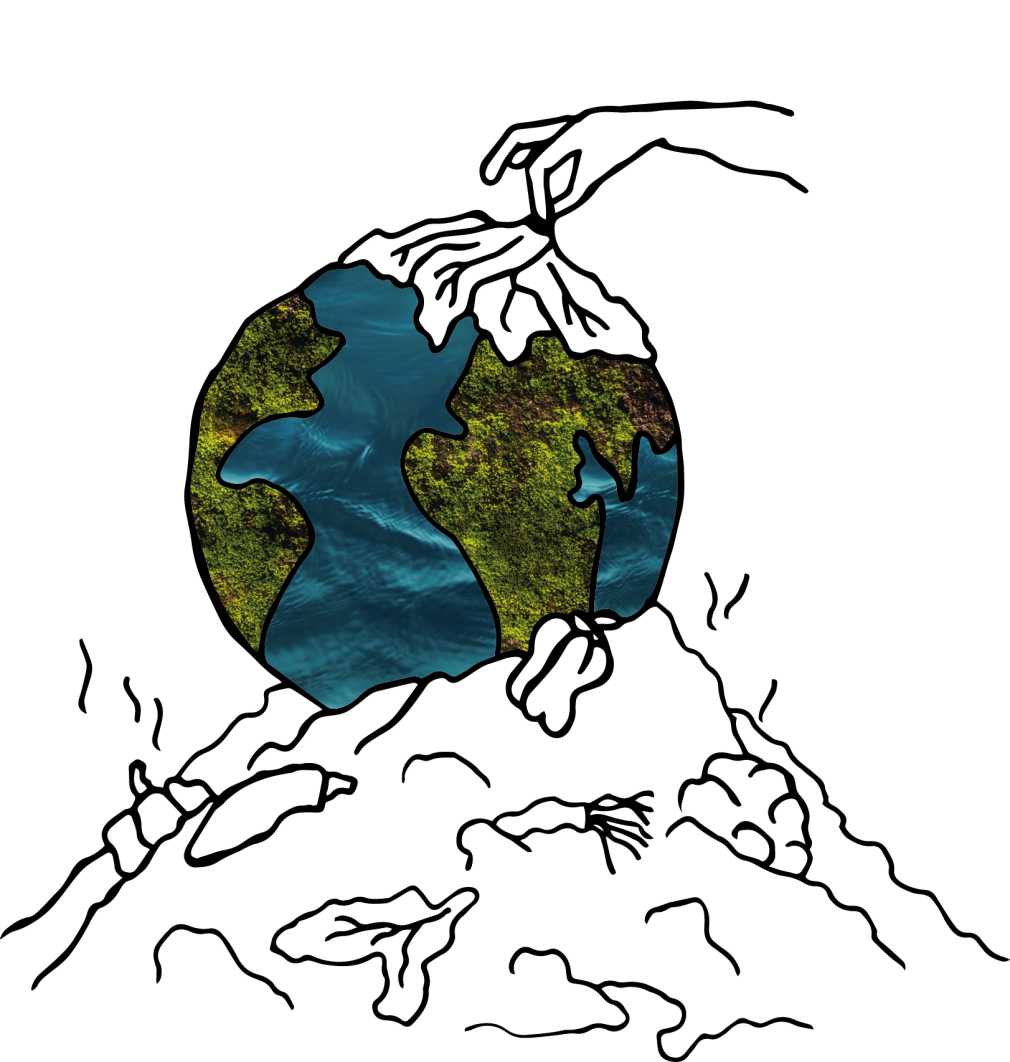
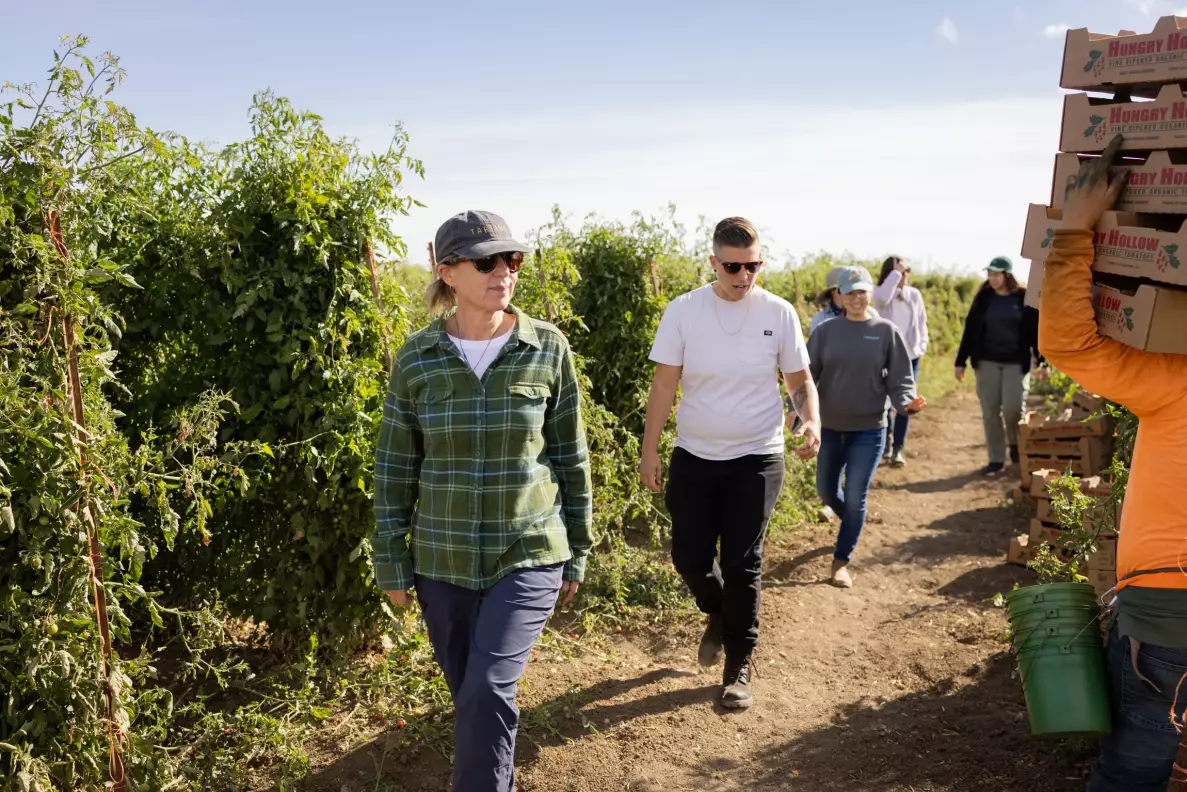
“We were ready to go and suddenly we had nothing. I got on the phone and called everyone I knew in every state on the East Coast to ask if they knew any co-packing facilities. But, as they're usually booked 18 months ahead of time, I kept hearing no as an answer. And then I happened to get on the phone with someone in Portland, Maine who was working on a USDA project with a group of farmers in the Portland Maine Food Shed. They were looking for someone to make added value products with surplus produce gleaned from participating farms in the area. She asked if we wanted to be part of that project, which would also give us access to a large incubator kitchen. I got in my car and drove up to Portland, met an amazing group of collaborative people, and that project ended up being the launch of Matriark.”
“We worked with seven farms in the Portland Maine Food Shed, collecting their surplus and making different products out of it. Fork Food Lab, the incubator kitchen, supported us for a year. We made three different frozen purees that we sold at their public market during Thanksgiving week 2018, two and half months after that first drive north. We went from not having a co-packing facility to having three products successfully in the market. And just as importantly, we were part of an incredible ecosystem of people working on farm food loss and waste measurement. That was when we started designing the first plans for a processing facility that would be able to address the core issue that we encountered when we launched: which is that there is no nimble, mid-scale food processing available in the United States.”
“And then of course the pandemic hit and food service shut down, globally. That was insane. Fortunately, during COVID, we still were able to run a big project with Restaurant Associates. They were doing food boxes for frontline workers and asked if we could make a smaller carton of our product to use in these food boxes. That one project kept us going for much of that first year. It allowed us to still pay farmers for their surplus and get food to people in need while working with a fantastic large food service company. Despite the fact that the world was a completely different place, we were able to stay true to our value proposition. It also deepened our business relationships, and we ended up being chosen to participate in the first Foodbuy Accelerator for minority- and women-owned businesses. That allowed us to get set up with Foodbuy, which is the largest group purchasing organization in the world for Compass Group.”
When you launched, you made a conscious choice to focus on food service as a primary sales channel. Why is that and how did that work out?
“We made the very unusual choice to focus on food service first. Creating small portions of packaged goods just felt as if we would merely be scratching the surface of this gigantic problem. I know the consumer packaged goods industry can be very slow and I'm very impatient. I knew that if we could crack into food service we could create a much bigger impact faster. As our main goals were to divert wasted food from landfill, feed large numbers of people healthy food and create more revenue streams for farmers, we went for the big numbers. Cooking in 30,000 pound batches and putting it in 20- and 40-pound bags or 400 pound drums. We are talking about real numbers.”
“We launched in food service and we had a couple of fortuitous things that happened around that time. We got invited to the Compass Group Stop Food Waste event at the Javits Convention Center in New York in the fall of 2019, which was exactly when we had our first shelf-stable upcycled product ready. We launched at the event and we met a couple of important people at Compass Group, who liked the product, understood the concept, and overall were really excited about what we had been able to pull off. Just through this one event, we made our entrance into major food service companies and got picked up by U.S. Foods and Sysco. By the time we finished all the paperwork at the beginning of March of 2020, we sold our first pallet of product, a vegetable broth concentrate, right off the bat. It was just amazing recognition.”
With your company, you focus on two important topics: reducing food loss and waste and providing more food to those who are in need. What are some of your initial learnings?
“To be honest, I had no idea how hard it was going to be. And that’s a good thing, because had I known what I know now, I might never have started. Just trying to find a manufacturer that wasn't a community kitchen to produce our first product took over a year. Finally, we found a small co-packing facility in the Hudson Valley that packaged various products for a couple of farms and businesses in New York City. The day before we were supposed to go live, they called and said, ‘Sorry, there are too many customers that need full days of production, we can't do a test run until February.’”
What made you decide to create Matriark Foods?
“I grew up with a strong sensibility around not wasting anything, including food. My two grandmothers, one of whom grew up on a farm, the other was a political refugee, modeled reuse as a way of living that was frugal and also respectful. Matriark embodies those values as we advance and develop systems through which all food that is grown can reach its highest purpose: feeding people. My previous job was also a catalyst for starting this business. I was the founding Executive Director for a healthy eating program for youth and families living in public housing in New York City. Part of that program was bringing surplus produce from local farms in Columbia County, known as the vegetable basket of the Northeast, down into New York City for our classes. The insane logistics of moving surplus food when there is no cold storage or limited trucking, people picking up a bushel one day and a truckload another day - obviously contributed to enormous amounts of waste. It drove me crazy to see that so much food was wasted, while knowing these teenagers really needed and wanted to eat healthier food. It was a wrong that needed to be righted.”
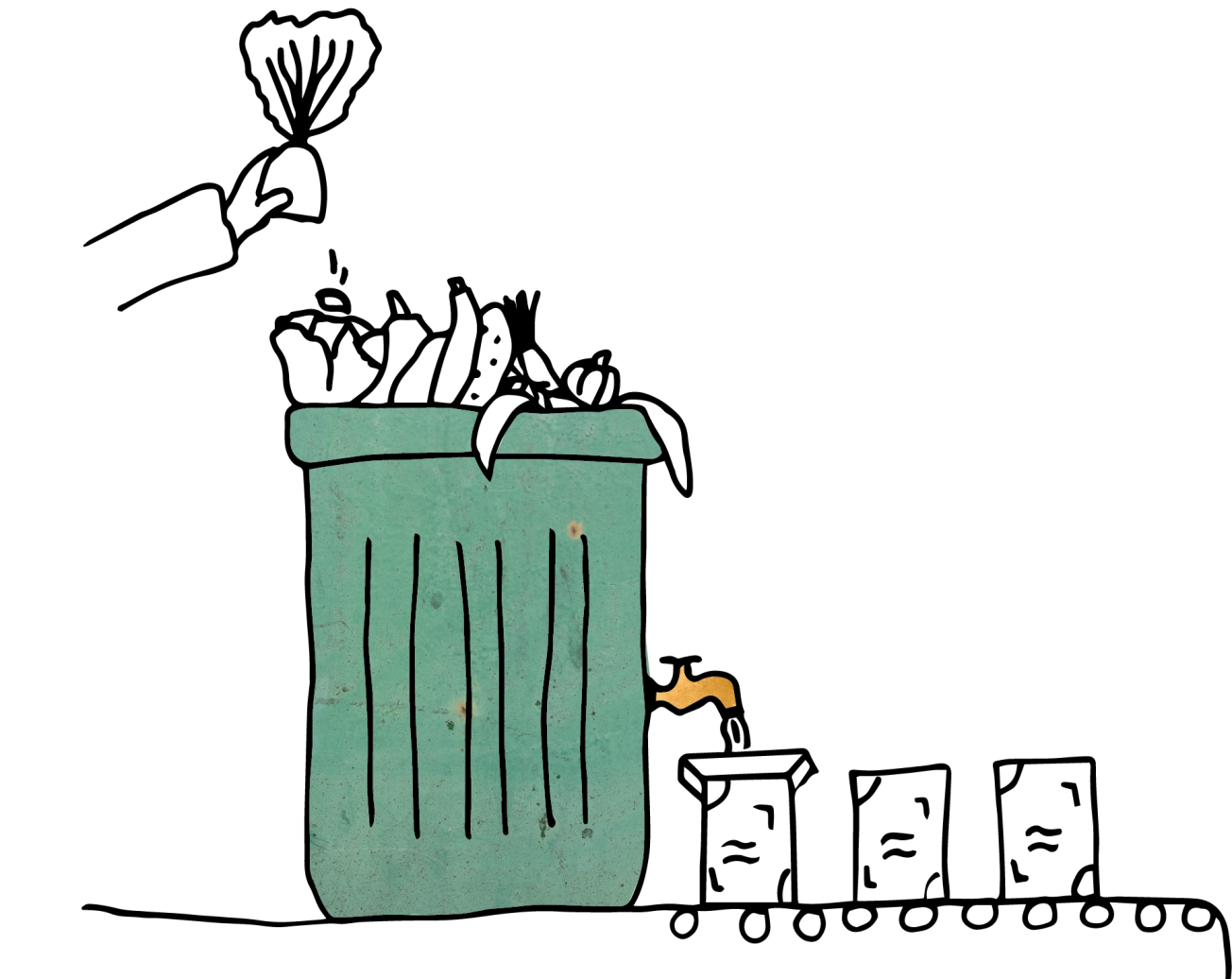
What is Matriark Foods all about?
“I founded Matriark Foods in 2018 as an environmental impact food company. We upcycle farm surplus and fresh cut remnants into products for food service, retail and food banks. We've created a supply chain working with manufacturing facilities and small- to mid-scale farmers to mitigate the dire effects that food waste has on the environment. We focus on the 19 million tons of vegetable remnants that are thrown out, the off-spec produce in manufacturing and the 83 million tons of unsold farm surplus that never makes it to the plate. We do this for the positive environmental impact, but also to create extra revenue streams for farmers and to create greater access to healthy food for all people.”
A better food system starts with a vision. In his podcast series Food Lab Talk, Michiel Bakker, Google's Vice President of Workplace Strategy, Innovation and Sustainability, interviews inspiring change makers working at the forefront of the most pressing food system challenges. Each month, Food Inspiration highlights one of these visionaries. The first season of Food Lab Talk focuses on reducing loss and waste in the food system and features Anna Hammond from Matriark Foods.
Moniek de Jongh Courtesy of Matriark
Loraine Elemans
Anna Hammond is the founder and CEO of Matriark Foods, whose mission is to divert surplus food from landfills while creating healthy products for food service, retail and emergency food supplies. What has been common practice for home cooks for centuries, Matriark is now doing at scale. The company upcycles farm surplus and fresh vegetable remnants into pantry staples like broth concentrates and pasta sauces. That may sound easier than it is. In order to do so, Anna and her team needed to develop an entirely new food-safe compliant supply chain to support this upcycling.
Editorial


11 min
Can you also share some of the hard lessons or failures you've dealt with?
“Developing our supply chain has proven to be incredibly complicated. Everyone we work with has to fill out tons of paperwork. They have to commit to saying that the food they provide would otherwise have gone to waste. They have to train the people on their factory floors to properly collect remnants and have all the compliance in place, for it to be food safe and traceable. In the first couple of rounds of product development, we ended up with some incidents where we had to shut everything down, restart, go back to the supplier and explain what needed to be improved. It was not at all easy-peasy. In the end, what saved us was everyone's willingness to try. I can pretend that everything went well, but it was a mess the first few times. When you're dealing with a new thing, there are a million things that are going to go wrong. You just have to get up off the floor, stop crying and start over again.”
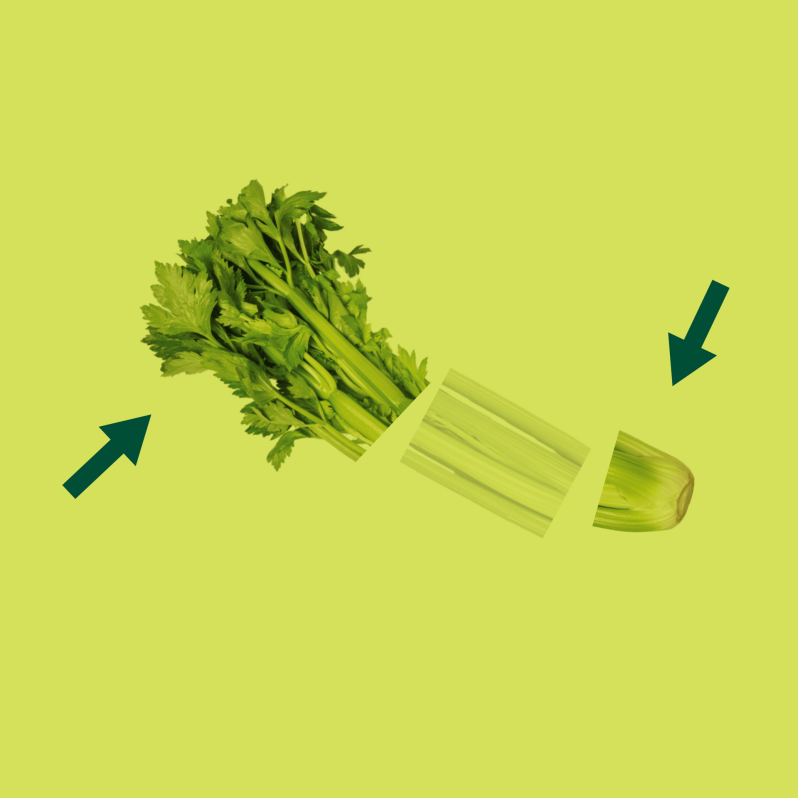
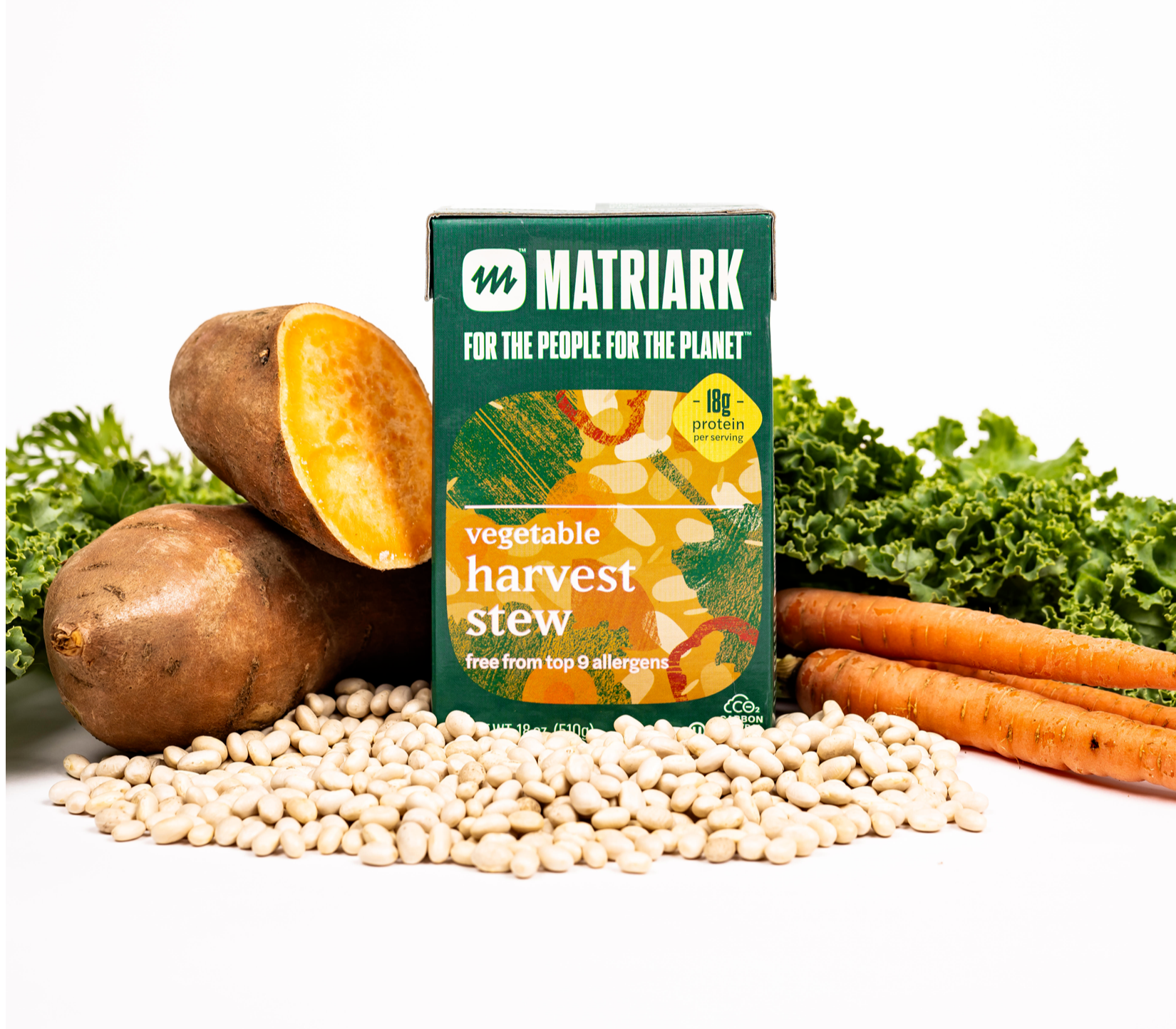
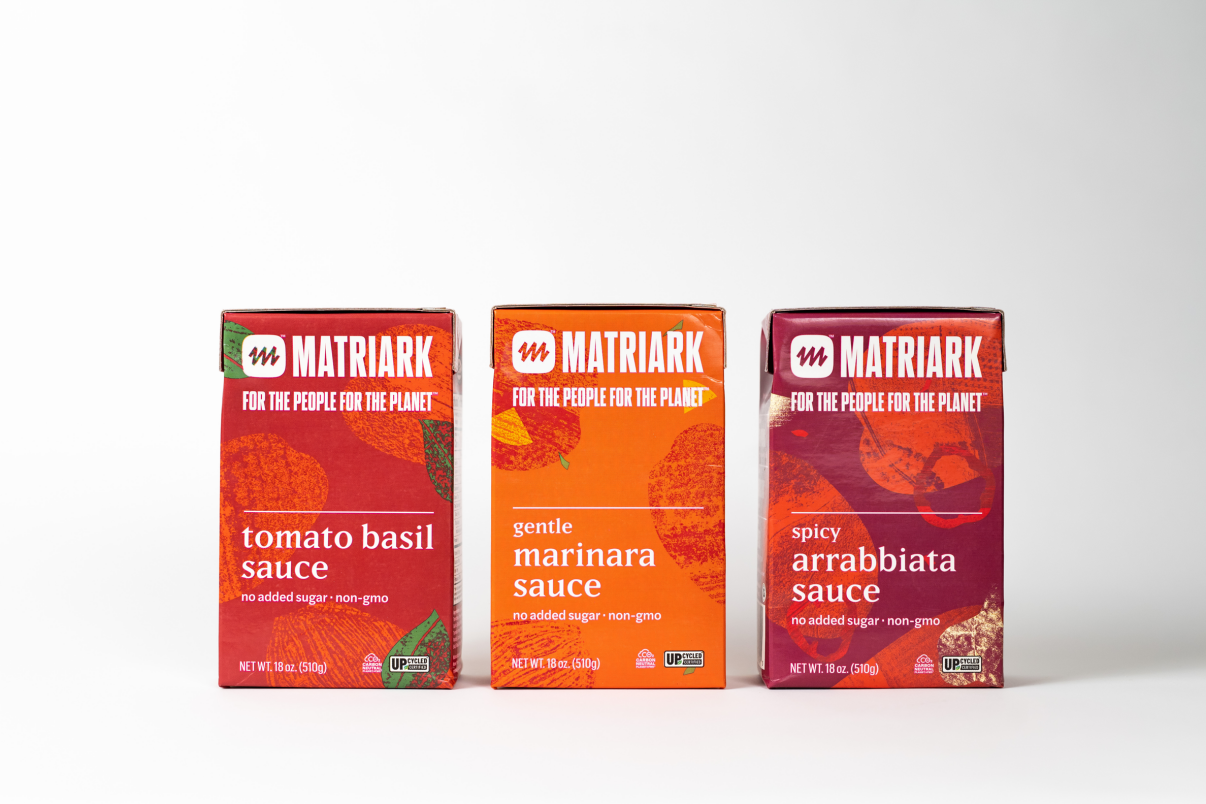

Over time your organization has grown. How do you develop your team when you're so purpose-driven?
“While building out our team and possible partnerships, I look for two things: passion and the relentless ability to solve problems. Saying, 'yes.' A desire to figure it out no matter what. When I first started this business, one of my sons sent me a link to watch the documentary Free Solo. It's about this crazy guy who climbs El Capitan unsecured, with no ropes. What's amazing about that, is the way he looks at this mountain. He's looking for the places where he can stick part of his finger or his toe to be able to get to the next level. That is exactly what trying to solve big problems is about. Because really anything can be solved. You have to find that crack, that little toehold. And that can be a person, that can be a machine, that can be a business partner. This business, and every job I've ever had, has been about finding those toeholds.”
You’re fighting a big system, which makes it hard to make progress. How do you stay motivated?
“Businesswise, we're diversifying the things that we're doing, making progress in different markets. Food service proved to be incredibly slow at times. So when we were encouraged to also launch in retail, I was incredibly hesitant, but also willing to give it a try. I wanted us to stay on the high impact trail, so our retail product needed to be something that you can use every day. We released three SKUs of tomato sauces made from a massive supply of off-spec tomatoes. We had planned a careful, gradual launch in the Northeast, but got picked up by Whole Foods in the first hour of Expo East (Trade Show) and now we're in 55 Whole Foods, another 255 grocery stores and on FreshDirect. It’s been really interesting to see how quickly the response from customers shopping for their daily provisions can be, and the feedback and excitement about climate-friendly food has made us feel very hopeful about the future of food systems change.”
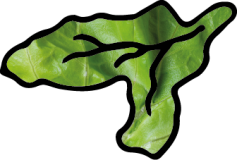
About Matriark Foods
Founded in 2018, Matriark started with a USDA-grant to do R&D at the Fork Food Lab in Portland, Maine. Working with small- and mid-size farmers, founder Anna Hammond purchased surplus from the farms. Matriark now has nine SKUs, including pasta sauces, vegetable broth concentrates and vegetable stews. Matriark sells its products in 20- and 40-pound bags, 400-pound drums and 18-ounce cartons of concentrate, all ideal for foodservice operators. Matriark just launched a healthy meal in a shelf-stable carton for food banks and emergency food providers. All production is done through co-packers.
The company is a founding member of the Upcycled Food Association and is Upcycled Certified. It was also selected for the 2021 cohort of The Kroger Co. Zero Hunger/Zero Waste Foundation Innovation Fund and received an impact investment of $250,000. In December 2023, The Specialty Food Association awarded Anna Hammond with the 2024 ‘Emerging Leader’ Leadership Award.
Matriark’s products are carried by Sysco and U.S. Foods. They're sold in Whole Foods in the Northeast of the U.S and available online through Amazon, FreshDirect and Misfits Market.

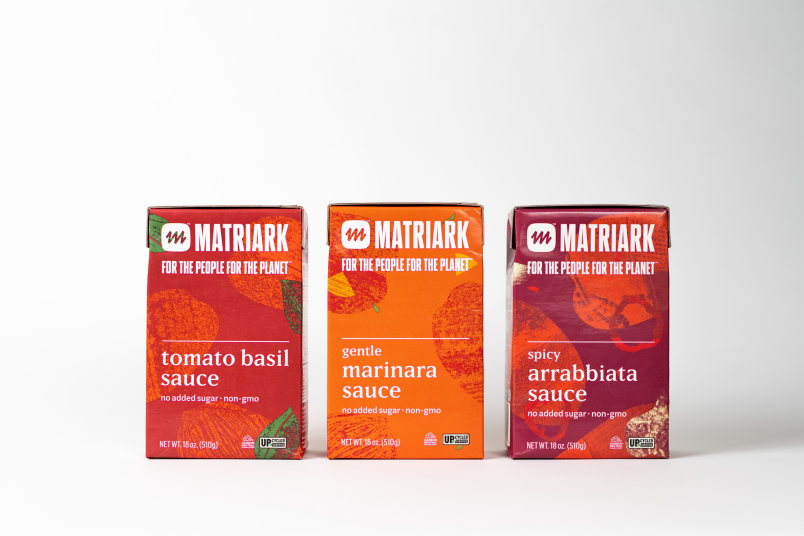
Can you also share some of the hard lessons or failures you've dealt with?
“Developing our supply chain has proven to be incredibly complicated. Everyone we work with has to fill out tons of paperwork. They have to commit to saying that the food they provide would otherwise have gone to waste. They have to train the people on their factory floors to properly collect remnants and have all the compliance in place, for it to be food safe and traceable. In the first couple of rounds of product development, we ended up with some incidents where we had to shut everything down, restart, go back to the supplier and explain what needed to be improved. It was not at all easy-peasy. In the end, what saved us was everyone's willingness to try. I can pretend that everything went well, but it was a mess the first few times. When you're dealing with a new thing, there are a million things that are going to go wrong. You just have to get up off the floor, stop crying and start over again.”
Over time your organization has grown. How do you develop your team when you're so purpose-driven?
“While building out our team and possible partnerships, I look for two things: passion and the relentless ability to solve problems. Saying, 'yes.' A desire to figure it out no matter what. When I first started this business, one of my sons sent me a link to watch the documentary Free Solo. It's about this crazy guy who climbs El Capitan unsecured, with no ropes. What's amazing about that, is the way he looks at this mountain. He's looking for the places where he can stick part of his finger or his toe to be able to get to the next level. That is exactly what trying to solve big problems is about. Because really anything can be solved. You have to find that crack, that little toehold. And that can be a person, that can be a machine, that can be a business partner. This business, and every job I've ever had, has been about finding those toeholds.”
You’re fighting a big system, which makes it hard to make progress. How do you stay motivated?
“Businesswise, we're diversifying the things that we're doing, making progress in different markets. Food service proved to be incredibly slow at times. So when we were encouraged to also launch in retail, I was incredibly hesitant, but also willing to give it a try. I wanted us to stay on the high impact trail, so our retail product needed to be something that you can use every day. We released three SKUs of tomato sauces made from a massive supply of off-spec tomatoes. We had planned a careful, gradual launch in the Northeast, but got picked up by Whole Foods in the first hour of Expo East (Trade Show) and now we're in 55 Whole Foods, another 255 grocery stores and on FreshDirect. It’s been really interesting to see how quickly the response from customers shopping for their daily provisions can be, and the feedback and excitement about climate-friendly food has made us feel very hopeful about the future of food systems change.”

About Matriark Foods
Founded in 2018, Matriark started with a USDA-grant to do R&D at the Fork Food Lab in Portland, Maine. Working with small- and mid-size farmers, founder Anna Hammond purchased surplus from the farms. Matriark now has nine SKUs, including pasta sauces, vegetable broth concentrates and vegetable stews. Matriark sells its products in 20- and 40-pound bags, 400-pound drums and 18-ounce cartons of concentrate, all ideal for foodservice operators. Matriark just launched a healthy meal in a shelf-stable carton for food banks and emergency food providers. All production is done through co-packers.
The company is a founding member of the Upcycled Food Association and is Upcycled Certified. It was also selected for the 2021 cohort of The Kroger Co. Zero Hunger/Zero Waste Foundation Innovation Fund and received an impact investment of $250,000. In December 2023, The Specialty Food Association awarded Anna Hammond with the 2024 ‘Emerging Leader’ Leadership Award.
Matriark’s products are carried by Sysco and U.S. Foods. They're sold in Whole Foods in the Northeast of the U.S and available online through Amazon, FreshDirect and Misfits Market.

“And then of course the pandemic hit and food service shut down, globally. That was insane. Fortunately, during COVID, we still were able to run a big project with Restaurant Associates. They were doing food boxes for frontline workers and asked if we could make a smaller carton of our product to use in these food boxes. That one project kept us going for much of that first year. It allowed us to still pay farmers for their surplus and get food to people in need while working with a fantastic large food service company. Despite the fact that the world was a completely different place, we were able to stay true to our value proposition. It also deepened our business relationships, and we ended up being chosen to participate in the first Foodbuy Accelerator for minority- and women-owned businesses. That allowed us to get set up with Foodbuy, which is the largest group purchasing organization in the world for Compass Group.”
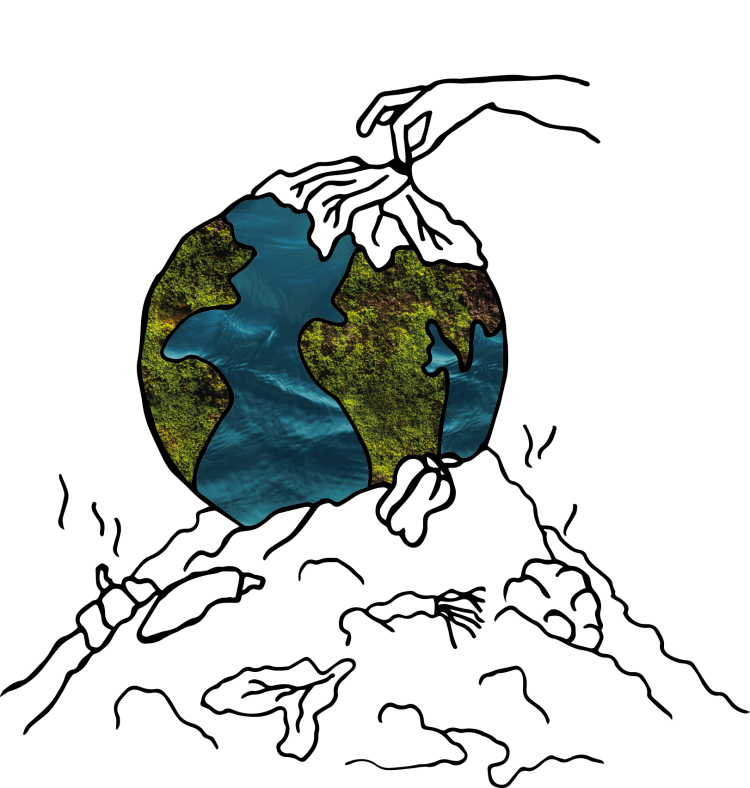
When you launched, you made a conscious choice to focus on food service as a primary sales channel. Why is that and how did that work out?
“We made the very unusual choice to focus on food service first. Creating small portions of packaged goods just felt as if we would merely be scratching the surface of this gigantic problem. I know the consumer packaged goods industry can be very slow and I'm very impatient. I knew that if we could crack into food service we could create a much bigger impact faster. As our main goals were to divert wasted food from landfill, feed large numbers of people healthy food and create more revenue streams for farmers, we went for the big numbers. Cooking in 30,000 pound batches and putting it in 20- and 40-pound bags or 400 pound drums. We are talking about real numbers.”
“We launched in food service and we had a couple of fortuitous things that happened around that time. We got invited to the Compass Group Stop Food Waste event at the Javits Convention Center in New York in the fall of 2019, which was exactly when we had our first shelf-stable upcycled product ready. We launched at the event and we met a couple of important people at Compass Group, who liked the product, understood the concept, and overall were really excited about what we had been able to pull off. Just through this one event, we made our entrance into major food service companies and got picked up by U.S. Foods and Sysco. By the time we finished all the paperwork at the beginning of March of 2020, we sold our first pallet of product, a vegetable broth concentrate, right off the bat. It was just amazing recognition.”
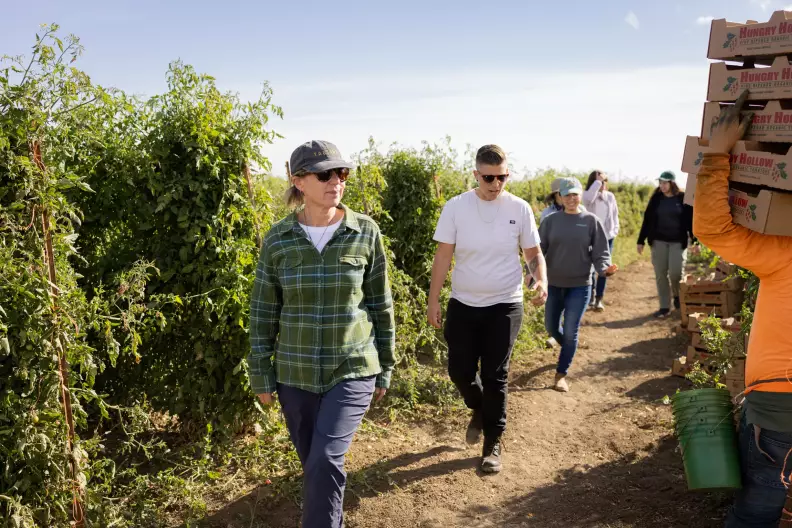
“We were ready to go and suddenly we had nothing. I got on the phone and called everyone I knew in every state on the East Coast to ask if they knew any co-packing facilities. But, as they're usually booked 18 months ahead of time, I kept hearing no as an answer. And then I happened to get on the phone with someone in Portland, Maine who was working on a USDA project with a group of farmers in the Portland Maine Food Shed. They were looking for someone to make added value products with surplus produce gleaned from participating farms in the area. She asked if we wanted to be part of that project, which would also give us access to a large incubator kitchen. I got in my car and drove up to Portland, met an amazing group of collaborative people, and that project ended up being the launch of Matriark.”
“We worked with seven farms in the Portland Maine Food Shed, collecting their surplus and making different products out of it. Fork Food Lab, the incubator kitchen, supported us for a year. We made three different frozen purees that we sold at their public market during Thanksgiving week 2018, two and half months after that first drive north. We went from not having a co-packing facility to having three products successfully in the market. And just as importantly, we were part of an incredible ecosystem of people working on farm food loss and waste measurement. That was when we started designing the first plans for a processing facility that would be able to address the core issue that we encountered when we launched: which is that there is no nimble, mid-scale food processing available in the United States.”
With your company, you focus on two important topics: reducing food loss and waste and providing more food to those who are in need. What are some of your initial learnings?
“To be honest, I had no idea how hard it was going to be. And that’s a good thing, because had I known what I know now, I might never have started. Just trying to find a manufacturer that wasn't a community kitchen to produce our first product took over a year. Finally, we found a small co-packing facility in the Hudson Valley that packaged various products for a couple of farms and businesses in New York City. The day before we were supposed to go live, they called and said, ‘Sorry, there are too many customers that need full days of production, we can't do a test run until February.’”
What made you decide to create Matriark Foods?
“I grew up with a strong sensibility around not wasting anything, including food. My two grandmothers, one of whom grew up on a farm, the other was a political refugee, modeled reuse as a way of living that was frugal and also respectful. Matriark embodies those values as we advance and develop systems through which all food that is grown can reach its highest purpose: feeding people. My previous job was also a catalyst for starting this business. I was the founding Executive Director for a healthy eating program for youth and families living in public housing in New York City. Part of that program was bringing surplus produce from local farms in Columbia County, known as the vegetable basket of the Northeast, down into New York City for our classes. The insane logistics of moving surplus food when there is no cold storage or limited trucking, people picking up a bushel one day and a truckload another day - obviously contributed to enormous amounts of waste. It drove me crazy to see that so much food was wasted, while knowing these teenagers really needed and wanted to eat healthier food. It was a wrong that needed to be righted.”
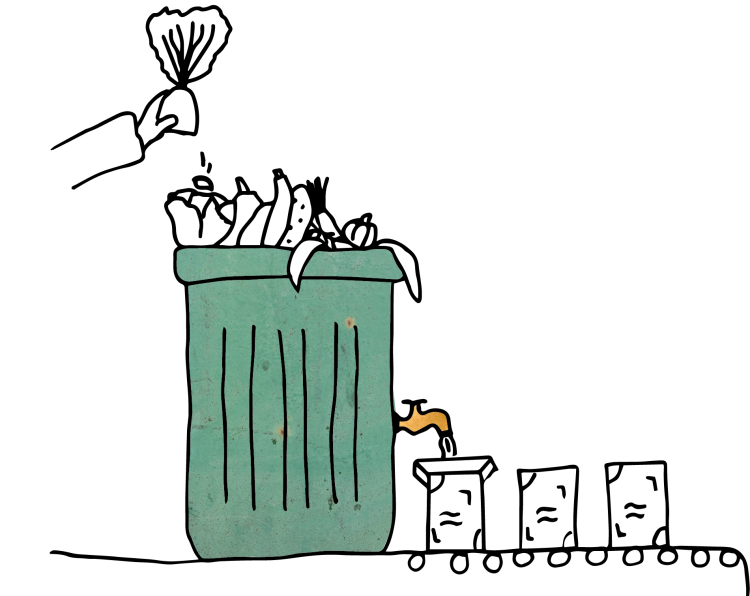
What is Matriark Foods all about?
“I founded Matriark Foods in 2018 as an environmental impact food company. We upcycle farm surplus and fresh cut remnants into products for food service, retail and food banks. We've created a supply chain working with manufacturing facilities and small- to mid-scale farmers to mitigate the dire effects that food waste has on the environment. We focus on the 19 million tons of vegetable remnants that are thrown out, the off-spec produce in manufacturing and the 83 million tons of unsold farm surplus that never makes it to the plate. We do this for the positive environmental impact, but also to create extra revenue streams for farmers and to create greater access to healthy food for all people.”
A better food system starts with a vision. In his podcast series Food Lab Talk, Michiel Bakker, Google's Vice President of Workplace Strategy, Innovation and Sustainability, interviews inspiring change makers working at the forefront of the most pressing food system challenges. Each month, Food Inspiration highlights one of these visionaries. The first season of Food Lab Talk focuses on reducing loss and waste in the food system and features Anna Hammond from Matriark Foods.
Moniek de Jongh Courtesy of Matriark
Loraine Elemans
Anna Hammond is the founder and CEO of Matriark Foods, whose mission is to divert surplus food from landfills while creating healthy products for food service, retail and emergency food supplies. What has been common practice for home cooks for centuries, Matriark is now doing at scale. The company upcycles farm surplus and fresh vegetable remnants into pantry staples like broth concentrates and pasta sauces. That may sound easier than it is. In order to do so, Anna and her team needed to develop an entirely new food-safe compliant supply chain to support this upcycling.
6 min
